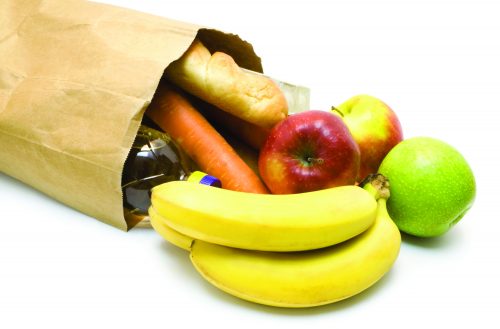
Senior nutritionist Rose Carr answers common questions about carbohydrates.
Why do I need carbohydrates?
Carbohydrates, which are found in cereals, vegetables and fruit, are essential to our diet and we need to eat them on a regular basis to maintain energy levels, mental function and general good health. The main role of carbohydrates is to provide energy to cells. Excluding fibre, all other carbohydrates are broken down into glucose, which is the main energy source for our cells. And unless we are starving, it’s the only source of energy for the brain. Carbohydrates are needed to maintain blood glucose levels and are important for gut health and functioning.
Are some carbohydrates better than other carbohydrates?
It is important to distinguish between different types of carbohydrates. One person may get their carbohydrates from a bowl of puffed wheat for breakfast, white bread sandwiches at lunch with a few biscuits, and white rice at dinner followed by cake. While highly processed grains and sugars will keep our brain functioning, they won’t do much for our bowels or heart health. Some of these can also be very high in energy (kilojoules) but low in fibre and vitamins and not even very filling.
Wholegrain breads and cereals are much more nutritious as they provide more vitamins and they are higher in fibre. The fibre makes them more filling and also means glucose is released into the blood more slowly.
Different amounts of carbohydrate are also found in vegetables, fruit and legumes, which also contain fibre and are packed with nutrients. Vegetables such as potato, kumara and sweet corn have high amounts of carbohydrate in the form of starch, whereas the carbohydrate in fruit is mainly sugars. Dairy also contains carbohydrates mostly in the form of a sugar called lactose.
How much carbohydrate do I need?
Carbohydrates should supply between 45 and 65 per cent of the energy in our diets, and to achieve that we are advised to eat lots of vegetables and to include wholegrain cereals and fruit in our diets each day. For a reduced- energy diet we could choose fewer cereal-based foods and add more low-energy vegetables.
I lose weight when I don’t eat carbohydrates, so why should I eat them again?
If you never eat another piece of white bread, cake or confectionery again, you may feel a little deprived on occasion, but you certainly won’t harm your health. On the other hand, fibre which is carbohydrate, is very important to health.
Wholegrain cereals, as well as vegetables and fruit, are a good source of fibre and other carbohydrates. It is in your best health interests to consider the type and amount of carbohydrates you consume, rather than branding all carbohydrates as bad. It is also important to remember that our brains need around 140g glucose (from carbohydrates) each day.
For people wanting to lose weight, rather than eliminate carbohydrate, reduce portion sizes for carbohydrate foods (including starchy vegetables), making most bread and cereals whole grains, and including more low-energy vegetables such as leafy greens, tomatoes, capsicum and carrots. These nutrient-rich vegetables will add fibre and help fill you up. That way you can eat less without compromising your health and without feeling hungry.
What is carbohydrate loading?
Carbohydrates, stored as glycogen in our muscles and the liver, are also the main source of energy for muscle contraction.
Before an endurance event such as marathon running, cycling or endurance swimming, maximising the amount of stored glycogen helps to delay fatigue during the event. Athletes do this by carbohydrate loading.
During the week before an event, an athlete will significantly reduce their training and in the two to three days prior to the event, increase their carbohydrate intake.
As glycogen is stored with water, an athlete can expect to gain around one to two kilos during this time. However, using stored glycogen during the event will see this extra weight disappear again.
Carbohydrate loading is not usually practical in team sports where games are played every three to four days, nor for high intensity exercise less than 90 minutes as the body’s usual carbohydrate stores are adequate.
Carbohydrate loading is a useful tool for endurance sport but research has shown many athletes struggle to do it effectively. A sports dietitian or nutritionist can help you establish how much carbohydrate you need and how much of what foods will help you achieve carbohydrate loading.
www.healthyfood.com











